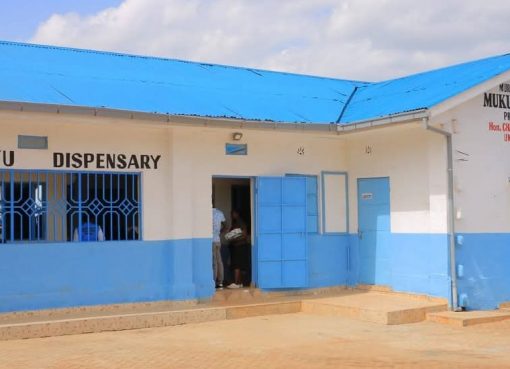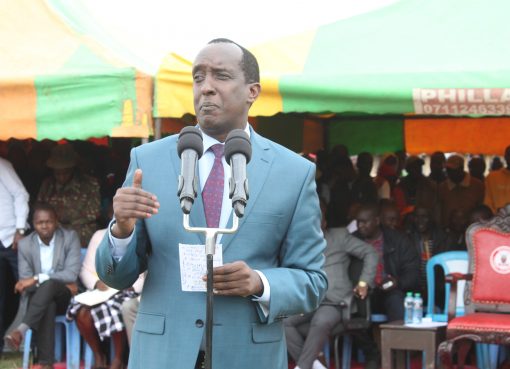Wiper Democratic Party Leader, Stephen Kalonzo Musyoka, has advised the County Public Boards (CPSBs), to exercise professionalism, transparency, and accountability in carrying out their noble duties, including the recruitment of staff.
Kalonzo reiterated the need to establish autonomy for County Public Service Boards, in order to entrench good governance and, at the same time, urge CPSBs, to arrest issues of corruption in the management of county employees.
The Wiper Leader, who is also the Azimio – One Kenya Coalition Co-Principal, said although many achievements have been made since the inception of devolution and the subsequent CPSBs in 2013, there are still hitches that need to be resolved, to improve service delivery in both the National and County Administrations.
“Widespread accusations of corruption, resource mismanagement, and discriminatory employment practices exposed in recent publications, cast a pall over the values of openness, responsibility, and justice that ought to guide our public institutions,” the wiper leader stated.
Kalonzo was speaking, Tuesday, during the official opening of a Four-Day County governments governance convention in Naivasha.
The convention, themed; “Professionalism and Good Governance in a Political Context,” has been organised by the Institute of Certified Public Secretaries (ICPS), to train CPSBs from the 47 counties, on various issues of governance and recruitment.
Kalonzo noted with concern that the number of counties complying with the national recruitment standards, has decreased from 21 in 2016 to just 13 in 2022.
“The Constitution’s values of inclusion and equality are undermined by the persistent disregard for the County Government Act’s provision, requiring the allocation of positions among varied communities,” he observed, suggesting that the Code of Governance for the County Government, be created by the Institute of Certified Secretaries, adding that this will help to entrench best practices and standards for governance.
Kalonzo noted that the county government officials, must be unwaveringly committed, to corporate governance principles and follow established procedures and standards, in order to maintain balance.
The Wiper Leader observed that the vital role that County governments, County Assemblies, and County Public Service Boards (CPSBs) play in the governance of the county governments, impacted on how our county public service develops, such as in human resource management, among others.
“Despite the challenges that our county governments face, let us all re-affirm our shared commitment, to preserving the highest ethical standards and advancing good governance practices. We must, therefore, guarantee that our officers have the appropriate tools, resources, and assistance to carry out their responsibilities successfully and transparently. Furthermore, the National government must ensure that counties have appropriate and timely resources, to carry out their tasks effectively and efficiently,” he added.
Kalonzo noted that earlier this month, the Public Service Commission (PSC) released a report on falsified academic credentials, to the Ethics and Anti-Corruption Commission (EACC) and other investigative agencies, which revealed that there are some 2,000 public servants in critical government parastatals and ministries, who acquired their positions using fake certificates and want these investigations extended to the counties.
The alarming revelation had shown that most of the individuals are in the Ministry of Interior, the Kenyatta National Hospital (KNH), the Moi Teaching and Referral Hospital (MTRH), and the Geothermal and Development Corporation, a parastatal under the Ministry of Energy.
“I encourage CPSBs to cascade this and conduct verification in their respective counties. I urge all CPSBs to conduct due diligence during hiring, appointments, and promotions, to prevent this from happening again, as they try to weed out personnel with fraudulent documents at the county level as well,” the Wiper leader said.
He added that although issues such as political interference and favouritism continue to contribute to non-compliance, the counties require honesty, and CPSBs should play a major role in instilling strong governance practices in the devolved units.
Kalonzo voiced concern about patterns of employment in the counties following a report by the National Cohesion and Integration Commission’s (NCIC) 2023 audit Report, that revealed patterns of employment diversity among Kenya’s 47 counties.
The Report, he noted, showed that only 10 tribes account for nearly 80 per cent of county employment, while 29 tribes account for just one per cent of county work prospects and urged the CPSBs to play a critical role in ensuring equitable hiring practices, across delegated activities.
He beseeched on the government to entrench good governance in its daily administration, while promoting meritocracy in public institutions and called on the National government to ensure timely disbursement of funds to Counties, to enable them run their activities timely and effectively.
Kalonzo castigated what he termed as ethnic bias in the recruitment of officers to the police service and defense forces, which he noted, was a threat to the security of the country and its missions in the continent, blaming it on increased corruption among some security service members, where Kenyans who are eligible are made to part with thousands of shillings, to secure a slot in the various formations.
The ICPS CEO, Jeremiah Karanja, said the training of County Public Service Boards is geared towards entrenching and promoting good governance in the running of counties.
Karanja welcomed the call for the autonomy of the Boards, to ensure they can lend decisions affecting counties, without interference from County Executive Arm, adding that giving the Boards financial autonomy, will ensure they run their activities smoothly during recruitment, disciplinary, and firing of county employees.
Former Chair of the National Transition Authority, Kinuthia Wa Mwangi, said the autonomy of County Public Service Boards, have been a major challenge that have bedevilled County governments since inception.
Wa Mwangi implored the Senate, to move a motion which will establish a constitutional framework, for the independence of county Boards, and enable them to withstand political interference, while making their decisions.
It emerged that key other challenges facing the Boards include, pressure to employ politically connected persons, poor co-ordination between County and National Service Boards and lack of harmonised databases for county employees.
By Mabel Keya – Shikuku





